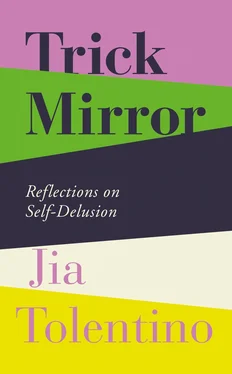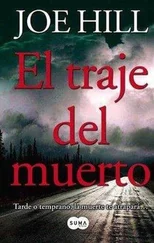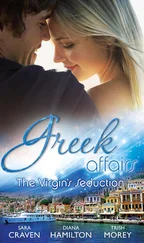The teens make souvenirs and try to sell them at the Wyndham resort, wearing Hawaiian-print hotel uniforms. DEMIANuses his Spanish; the boys win. Back at the house, the teens get their ice maker to produce snow-cone balls and throw them at one another. The power goes out, and they all swim in the pool in the dark. Over footage of PARISclimbing on top of ACEand DEMIAN, JIAtells the camera that PARISis trying to fit in on the boys’ team by using her boobs. The next day, the teens joust on kayaks; girls lose.
The girls call a bonus competition. RYDERand PARISspeed-eat enormous blood sausages and puke. KELLEYis frustrated that CORYhasn’t made a real move on her. “He’s nothing like anybody from home,” KELLEYsays.
Part of the reason I never watched the show past the first episode was that I never had to. The show aired just before things started to stick around on the internet, and it was much too minor for clips to resurface on YouTube. The N shut down in 2009, taking its website, with its Girls v. Boys bonus clips and fan forums, down, too. I had gotten on Facebook in 2005, between filming and airing, and it was clear enough—we’d already had LiveJournal and Xanga and Myspace—where this was all going. Reality TV conditions were bleeding into everything; everyone was documenting their lives to be viewed. I had the sense that, with Girls v. Boys, I could allow myself a rare and asymmetrical sort of freedom. With this show, I could have done something that was intended for public consumption without actually having to consume it. I could have created an image of myself that I would never have to see.
After the season concluded, the producers sent us the show on VHS tapes. In college, I gave the tapes to my best friend, at her request, and she binge-watched the whole season. While I was in the Peace Corps, my boyfriend watched the whole show, too. (He found reality TV me to be “exactly the same as you are now—just bitchier.”) He hid the tapes in his parents’ house so that I couldn’t find them and dispose of them, as I often threatened to. When his mom accidentally donated them to Goodwill, I was overjoyed.
And then, in the spring of 2017, I found myself in a rented guesthouse in upstate New York for the weekend. I had packed weed and sweatpants and taken the train up alone. It was dark, and late, and I was sitting at a small table near the window, writing down some ideas about—or so I scribbled, with typical stoner passion—the requirement and the impossibility of knowing yourself under the artificial conditions of contemporary life. I’d made a fire in the woodstove, and I stared at it, thinking. “Oh,” I said, out loud, abruptly remembering that I had been on a reality show. “Oh, no.”
I got on Facebook and messaged Kelley and Krystal. By some strange coincidence, Krystal was going to Costco that week to turn the VHS tapes into DVDs, and could make me a copy. She’d seen the show when it aired, as had Kelley and Cory. Later on, I was relieved, when I talked to Demian and Ace, to hear that both of them had stopped watching after the first couple of episodes.
“Why didn’t you keep going?” I asked Ace.
“I don’t know,” he said. “I mean—we already lived it, you know what I mean?”
The teens do a scavenger hunt, running around a public square and taking pictures of people kissing their dogs and doing handstands. Girls win. Back at the house, DEMIANgets a bucket of water to flush a giant poop. The boys call a bonus competition: everyone eats bowls of wet dog food with their hands tied behind their backs, and the girls win again.
At night, the teens blindfold one another and take turns kissing. They set up a makeshift Slip ’N Slide on a slope of the lawn with plastic sheeting and vegetable oil. They make muscles for the camera like wrestlers and then start play-fighting, chasing one another around with whipped cream.
On the south shore of Vieques, there’s a bay, almost completely enclosed by land, where the mangroves are dense and tangled and the air is perfectly still. It’s named Mosquito Bay, not for the insects but for El Mosquito, the ship owned by Roberto Cofresí, one of the last actual pirates of the Caribbean—a heartless legend who claimed to have buried thousands of pieces of treasure before he died. After a letter in a newspaper misidentified a dead pirate as Cofresí, rumors began to proliferate about his mythological powers: he could make his boat disappear; he was born with the capilares de Maria, a magic arrangement of blood vessels that made him immortal. A folk rumor persists that he appears every seven years, for seven days, engulfed in flames.
There are only five bioluminescent bays in the world, and of these, Mosquito Bay is the brightest. Each liter of its water contains hundreds of thousands of Pyrodinium bahamense, the microscopic dinoflagellates that produce an otherworldly blue-green light when agitated. On a night without moonlight, a boat going through these waters burns a trail of iridescence. Here the dinoflagellates have the safe and private harbor they need: the decomposing mangroves provide a bounty of food for the delicate organisms, and the passage to the ocean is shallow and narrow, keeping the disturbance of waves away. And so the dinoflagellates glitter—not for themselves, not in isolation, but when outside intrusions come through. The trouble is that intrusions disturb the bay’s delicate balance. Mosquito Bay went dark for a year in 2014, probably because of tourist activity, an excess of chemicals from sunscreen and shampoo. Today, tourists can still take a boat out as long as they forgo bug repellent. But swimming has been prohibited since 2007—two years after we swam there while taping the show.
We took the boat out on a black night, in an anvil-heavy quiet. Behind the moving masses of clouds, the milky stars emerged and disappeared. We were all nervous, hushed, agitated: we had all come from families who, I think, wanted to give us adventures like this, but who probably wouldn’t have been able to afford it—thus, maybe, the permission to come on the show. When the boat stopped in the middle of the bay, we trembled with joy. We slipped into the water and started sparkling, as if the stars had fallen into the water and were clinging to us. In the middle of the absolute darkness we were wreathed in magic, glowing like jellyfish, glittering like the “Toxic” video—swimming in circles, gasping and laughing in the middle of a spreading pale-blue glow. We touched one another’s shoulders and watched our fingers crackle with light. After a long time, we got back in the boat, still dripping in bioluminescence. I squeezed glittering water out of my hair. My body felt so stuffed with good luck that I was choking on it. I felt caught in a whirlpool of metaphysical accident. There were no cameras, and they couldn’t have captured it, anyway. I told myself, Don’t forget, don’t forget.
The teens have to dive for items in the ocean, swim to shore, and guess who owns them. JIAflips through a wallet with movie stubs in it: “ Josie and the Pussycats ? This is CORY,” she says. Girls win. KELLEYfinally gets CORYto go off in a dark corner and make out with her. Over footage of DEMIANtickling her in a bunk bed, JIAtells the camera that DEMIANis still trying to shoot his shot.
The next challenge is set at a high school. The teens decorate bathing suits and get onstage nearly naked to put on a show for a thousand Puerto Rican teenagers, who will vote on the winning team. This footage is unspeakable; boys win. Girls call a bonus competition. KELLEYwins a game of oversize Jenga against DEMIAN. The girls have been behind for the entire competition, but now they’re almost even. The boys are turning on one another. PARISand ACEscream at each other to chill the fuck out.
Читать дальше












